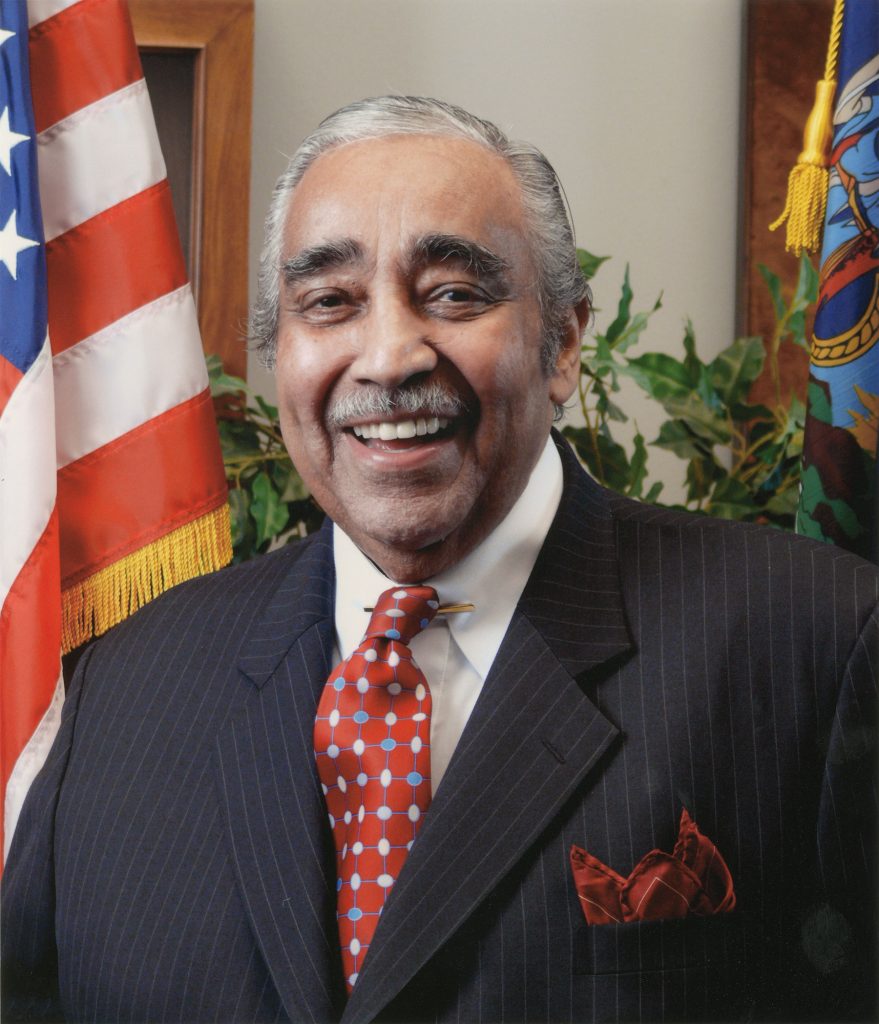by Jan Gloor
Charles Bernard Rangel, whose remarkable life and work touched countless individuals in Harlem and beyond, leaves behind an enduring legacy of service, advocacy, and commitment to his community. Born on June 11, 1930, in Harlem, Rangel never forgot the streets that shaped him. From his time as a young man in the U.S. Army, where he earned both a Bronze Star and a Purple Heart, to his lifelong dedication to public service, Rangel exemplified a sense of duty that would define his political career.
Rangel’s rise in politics was closely tied to the story of Harlem itself. In the 1960s, he was part of a movement of political leaders—often referred to as the “Gang of Four”—that sought to redefine the political landscape for African Americans in New York City. Alongside Percy Sutton, Basil Paterson, and David Dinkins, Rangel helped build a foundation for Black political power, with the goal of giving Harlem a voice on the national stage. His victory in 1970, when he unseated the powerful Adam Clayton Powell Jr. to represent Harlem in the U.S. House of Representatives, was both a triumph for Rangel and a turning point for Harlem. Rangel’s leadership in Congress became a beacon for the community, as he pushed for policies that addressed systemic inequalities in housing, education, and economic opportunity.
Throughout his 46 years in office, Rangel remained deeply connected to Harlem, constantly working to uplift the neighborhood. He played an instrumental role in the creation of the Upper Manhattan Empowerment Zone, which provided federal funds to revitalize Harlem’s infrastructure, support local businesses, and protect its cultural landmarks. The iconic Apollo Theater and countless other institutions benefited from his tireless advocacy, ensuring that Harlem’s rich history and cultural legacy were preserved amid rapid urban development. Rangel also worked to expand affordable housing options, ensuring that Harlem residents could remain in their neighborhoods as gentrification began to change the face of the city.
Beyond these tangible accomplishments, Rangel was a true champion of civic engagement. He was a vocal supporter of The Harlem Times and their efforts on voter registration, seeing the empowerment of Harlem’s residents through the ballot box as a critical component of his broader vision for social justice. His commitment to fostering a politically aware and active community was evident in his work with local organizations and grassroots movements that advocated for the rights of marginalized populations.
Even in his later years, Rangel remained a staunch advocate for the values of justice, fairness, and opportunity that had defined his career. He continued to serve as a mentor to young political leaders, reminding them that public service is about more than just policies and procedures—it’s about people. His influence extended far beyond his time in office, and his dedication to his constituents, particularly in Harlem, remains unmatched.
Charlie Rangel’s legacy is one of resilience, dedication, and unwavering belief in the power of government to bring about positive change. His contributions to Harlem, to New York City, and to the nation will continue to inspire future generations of leaders who share his vision of a more just and equitable society.


My brother recommended I might like this web site He was totally right This post actually made my day You cannt imagine just how much time I had spent for this information Thanks